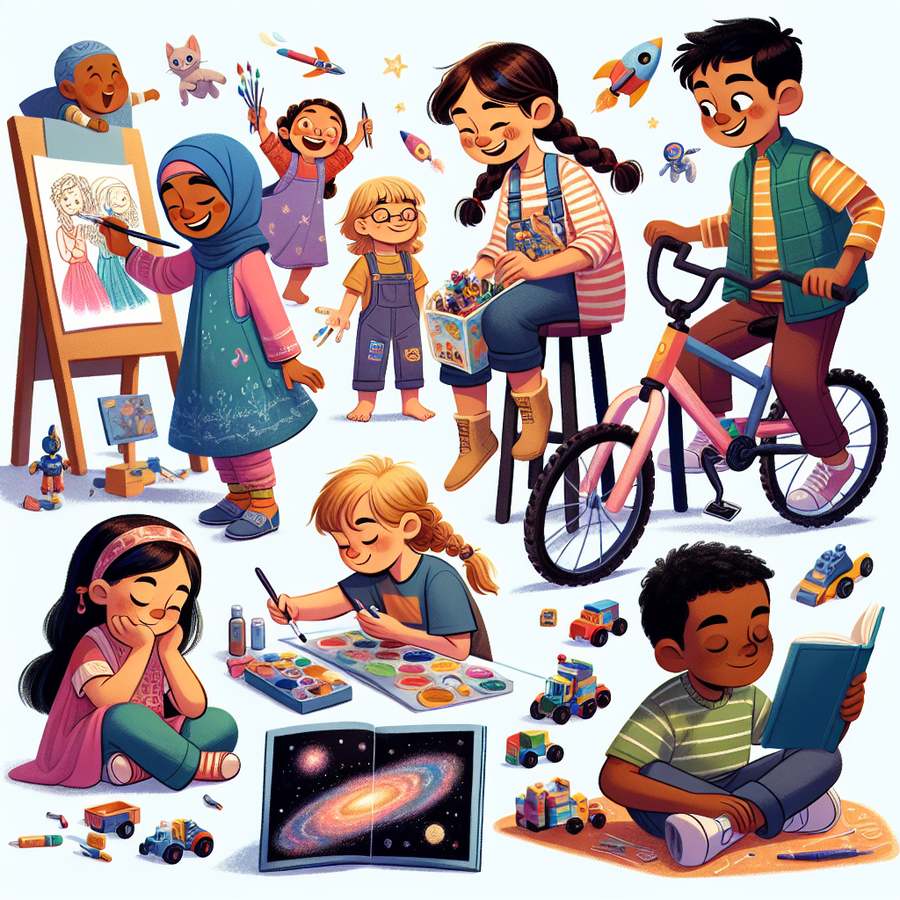Knowing how to identify and nurture your child’s strengths from an early age is a crucial aspect of parenting that can significantly impact their future. Each child is a unique individual with their own set of abilities and talents. Recognizing and supporting these strengths early on can lead to increased self-esteem, better academic performance, and a more fulfilled life. This guide offers deep insights and practical advice on spotting and encouraging your little one’s innate talents.
Understanding Your Child’s Unique Talents
Children begin to show signs of their strengths and preferences at a very young age. These can be observed in the way they play, interact with others, and express curiosity about the world around them. To effectively identify these strengths, parents and caregivers should pay close attention to their child’s interests, the activities they are drawn to, and what they naturally excel at. It’s important to provide a variety of experiences to expose them to different possibilities.
Observation is key in the early stages. For example, a child showing an early interest in books might have a strength in language and literacy. Others may display an aptitude for building and constructing, indicating strong spatial awareness and possibly an engineering mind. Supporting these interests through targeted activities and toys can help in nurturing these talents. A resource like Choosing Toys to Support Developmental Milestones at Various Stages can offer valuable guidance.
How to Identify and Nurture Your Child’s Strengths from an Early Age
Identifying your child’s strengths involves more than just observing their activities. Engage with your child through play and conversation to understand their thought processes and feelings. This engagement can reveal deeper insights into their character and potential strengths. For instance, a child who tends to lead during play might have strong leadership qualities. Encouraging these traits by providing opportunities for them to take charge in safe, supportive environments can be beneficial.
Another effective method is to introduce your child to new experiences that could unlock hidden talents. This could include exploring art, music, sports, or technology. Exposure to diverse activities not only helps in identifying strengths but also promotes a well-rounded development. To support this exploration, integrating music into your child’s routine, as suggested in Integrating Music into Your Baby’s Daily Routine for Cognitive Benefits, can be highly advantageous.
Nurturing Strengths Through Positive Reinforcement
Once you’ve identified your child’s strengths, it’s crucial to nurture them with positive reinforcement. This involves acknowledging their efforts and achievements, no matter how small. Celebrate successes and provide encouragement during setbacks to foster resilience and a growth mindset. This positive reinforcement can motivate your child to pursue their interests with enthusiasm and confidence.
Creating an environment that supports your child’s development is also essential. This includes providing the necessary resources, such as books, tools, or classes, that align with their interests. Moreover, being involved in your child’s learning process and showing genuine interest can significantly impact their motivation and self-esteem. Resources like Impact of Parental Involvement on Childhood Learning and Development highlight the importance of active parental engagement in fostering children’s strengths.
In conclusion, understanding how to identify and nurture your child’s strengths from an early age is a rewarding journey that requires patience, observation, and active engagement. By providing a supportive environment, offering diverse experiences, and using positive reinforcement, you can help your child discover and develop their unique talents, paving the way for a bright and fulfilling future. Remember, every child is different, and their journey to uncovering their strengths is as unique as they are. Embrace this journey with an open heart and mind, and enjoy the incredible process of watching your child grow and flourish.
For more resources and guidance on early childhood development, visit Baby Whys and Hows.













